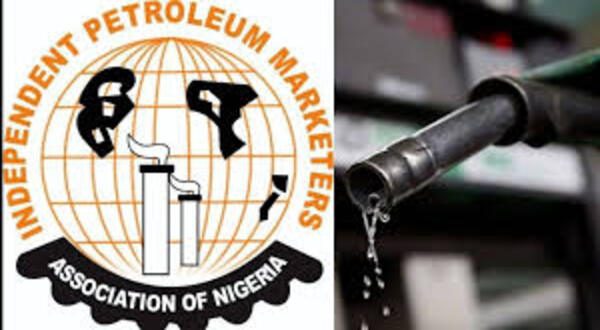ENUGU, Nigeria – August 25, 2025 – The Independent Petroleum Marketers Association of Nigeria (IPMAN) has unveiled a robust plan to enhance fuel pump integrity across its network, vowing to eliminate cheating and fraudulent practices at filling stations. The announcement, made by Chief Chinedu Anyaso, Chairman of IPMAN’s Enugu Unit, followed the association’s 2025 Annual General Meeting (AGM) held in Enugu on Sunday, August 24, 2025. The Enugu Unit, covering Enugu, Anambra, Ebonyi, and parts of Abia, Imo, Kogi, and Cross River States, resolved to establish a task force in September to enforce compliance and ensure Nigerians receive full value for their fuel purchases. The AGM also addressed critical issues, including the Anambra State Government’s outstanding N900 million debt to IPMAN members, the impact of high internally generated revenue (IGR) levies, and strategies to leverage partnerships with Dangote Refinery and JEZCO Oil and Gas. This report provides a comprehensive analysis of IPMAN’s initiatives, the challenges facing its members, and the broader implications for Nigeria’s petroleum distribution sector and economy.
IPMAN’s Commitment to Fuel Pump Integrity
At the heart of IPMAN’s 2025 AGM was a unanimous resolution to strengthen the integrity of fuel pumps and eliminate fraudulent practices that have eroded consumer trust. Chief Chinedu Anyaso, speaking at a press conference in Enugu, emphasized the association’s commitment to ensuring Nigerians receive accurate fuel volumes and quality products. “IPMAN has resolved to sanitize the system and uphold the integrity of its stations,” Anyaso stated. “Members at the AGM agreed that cheating and malpractice at fuel pumps must end.”
The decision comes amid growing public frustration with under-dispensing and adulterated fuel, practices that have cost consumers billions of naira and damaged the reputation of independent marketers. IPMAN, representing over 80% of Nigeria’s filling stations, plays a critical role in petroleum distribution, particularly in rural and semi-urban areas. The association’s pledge to crack down on fraud is a response to consumer complaints and regulatory pressure from bodies like the Nigerian Midstream and Downstream Petroleum Regulatory Authority (NMDPRA).
To enforce compliance, IPMAN’s Enugu Unit plans to inaugurate a task force in September 2025, with dedicated teams operating in each state under its jurisdiction: Enugu, Anambra, Ebonyi, Abia, Imo, Kogi, and Cross River. These teams will conduct daily monitoring to ensure fuel pumps are calibrated accurately and deliver the correct volumes. Anyaso disclosed that defaulting stations owned by IPMAN members will face heavy fines and sanctions, leveraging the association’s internal disciplinary structure. “We successfully eliminated the sale of adulterated fuel in the past, and we will apply the same rigor to address pump cheating,” he said.
The task force will work closely with state governments, NMDPRA, and consumer protection agencies to ensure transparency and accountability. This initiative aligns with broader efforts to improve service delivery in Nigeria’s petroleum sector, which has been plagued by inefficiencies, supply chain disruptions, and regulatory challenges. By prioritizing fuel pump integrity, IPMAN aims to rebuild consumer confidence and strengthen its role as a key player in the downstream petroleum industry.
The Anambra Debt Crisis
A significant focus of the AGM was the Anambra State Government’s outstanding debt of over N900 million owed to IPMAN members for diesel supplied for streetlighting projects. Anyaso highlighted the severity of the issue, noting that the debt has been pending for over a year despite repeated appeals to Governor Chukwuma Soludo and state officials. “We have sent three official letters and made direct appeals, but the debt remains unpaid,” he said. “We have chosen a diplomatic approach because directing our members to suspend fuel supply would worsen hardship for residents.”
The unpaid debt has had devastating consequences for IPMAN members in Anambra. Anyaso revealed that eight members have died in recent months due to stress and financial pressure from unpaid loans, with banks seizing or shutting down several filling stations. “The financial strain has become unbearable,” he said, warning that a strike by IPMAN members could push petrol prices in Anambra to between N2,000 and N3,000 per litre, triggering widespread economic disruption. Such a price surge would exacerbate Nigeria’s already high cost of living, with the National Bureau of Statistics (NBS) reporting a headline inflation rate of 21.88% and food inflation at 22.74% in July 2025.
Anyaso urged the Anambra State Government to urgently address the debt, emphasizing the need for an amicable resolution. The association plans to write to Governor Soludo again, seeking renewed dialogue to settle the matter and alleviate the financial burden on its members. The debt crisis underscores broader challenges in Nigeria’s petroleum sector, including delayed payments, high operational costs, and limited access to credit, which have strained independent marketers.
IGR Levies and Regulatory Challenges
Another key issue raised at the AGM was the high internally generated revenue (IGR) levies imposed on fuel stations in Anambra State. Anyaso acknowledged ongoing discussions with Governor Soludo but called for a review of the levies to create a more enabling business environment. “We commend the discussions so far but call for renewed dialogue to find an amicable settlement that benefits all parties,” he said.
The IGR levies, combined with other regulatory and operational costs, have placed significant financial pressure on IPMAN members. The cost of diesel, a critical input for running filling stations, surged by 29.72% year-on-year to N1,789.45 per litre in July 2025, according to the NBS. The naira’s 41.4% depreciation in 2024 has also increased the cost of imported equipment and fuel, further squeezing profit margins. The Central Bank of Nigeria’s (CBN) high interest rate policy, with the Monetary Policy Rate at 26.75%, has made borrowing prohibitively expensive, exacerbating the financial challenges faced by marketers.
The AGM’s resolution to address these levies reflects IPMAN’s broader advocacy for policies that support independent marketers. By engaging state governments and regulatory bodies, the association seeks to reduce operational costs and improve the viability of its members’ businesses, ensuring a steady supply of petroleum products to consumers.
Collaboration with Dangote Refinery and JEZCO Oil and Gas
The AGM also focused on new strategies to enhance product lifting and distribution, with IPMAN members resolving to participate in the Dangote Direct Sales and Delivery Scheme and JEZCO Oil and Gas initiatives. The Dangote Refinery, Africa’s largest with a capacity of 650,000 barrels per day, has emerged as a game-changer for Nigeria’s petroleum sector, reducing reliance on imported fuel and stabilizing supply. IPMAN’s partnership with Dangote aims to streamline access to refined products, ensuring consistent availability at filling stations.
JEZCO Oil and Gas, a leading indigenous player, is supporting IPMAN members with logistics and financing solutions to improve product lifting. These partnerships are critical in addressing supply chain challenges, which have been exacerbated by fuel scarcity and logistical bottlenecks. The initiatives also align with the Petroleum Industry Act (PIA) of 2021, which emphasizes local content development and the empowerment of indigenous companies.
Anyaso highlighted the importance of these collaborations, stating, “Our partnerships with Dangote and JEZCO will enhance our ability to deliver fuel efficiently and affordably to Nigerians.” The move is expected to reduce costs for marketers and consumers, particularly in the face of rising fuel prices and economic pressures.
Presentations on Innovation and Compliance
The AGM featured presentations from key stakeholders aimed at improving operational efficiency and compliance. The Federal Inland Revenue Service (FIRS) delivered a session on electronic tax filing, emphasizing the need for IPMAN members to adopt digital platforms for tax compliance. This aligns with the government’s push for digitalization to enhance transparency and revenue collection.
TradeGrid Limited, a technology solutions provider, presented strategies for facilitating product lifting and deploying solar power solutions for filling stations. Solar power offers a cost-effective alternative to diesel generators, which have become increasingly expensive due to rising fuel costs. “Solar solutions can reduce operational costs and improve sustainability for our members,” Anyaso noted, underscoring IPMAN’s commitment to innovation.
These presentations reflect the association’s proactive approach to addressing operational challenges and aligning with global trends toward sustainability and digitalization. By adopting new technologies and compliance measures, IPMAN aims to strengthen its members’ businesses and enhance service delivery.
Economic and Social Context
IPMAN’s initiatives must be viewed within Nigeria’s broader economic and social context. The NBS’s July 2025 data highlights persistent inflationary pressures, with headline inflation at 21.88% and food inflation at 22.74%. The World Bank’s estimate that 38.9% of Nigerians live below the poverty line underscores the economic hardship faced by millions, making affordable and reliable fuel supply critical. The high cost of diesel and the naira’s depreciation have increased operational costs for filling stations, squeezing profit margins and threatening their viability.
The petroleum sector is a lifeline for Nigeria’s economy, accounting for over 80% of export earnings and a significant portion of government revenue. However, inefficiencies in distribution, coupled with fuel scarcity and price volatility, have disrupted economic activity and fueled public discontent. The recent removal of fuel subsidies in 2023, under President Bola Tinubu’s administration, has led to petrol prices exceeding N600 per litre in many regions, further straining consumers.
Socially, the issue of fuel pump fraud has eroded trust between consumers and marketers. Under-dispensing and adulterated fuel have led to protests and legal disputes, with consumer advocacy groups demanding stricter regulation. IPMAN’s task force initiative is a response to these concerns, aiming to restore confidence and ensure fair practices. The Anambra debt crisis, meanwhile, highlights the broader issue of delayed payments to suppliers, which has ripple effects on businesses and communities.
Stakeholder Reactions
The AGM’s resolutions elicited varied reactions from stakeholders. Energy analyst Dr. Joseph Anzaku praised IPMAN’s commitment to fuel pump integrity, stating, “This is a bold step to rebuild consumer trust and improve service delivery.” He urged the task force to work closely with NMDPRA to ensure effective enforcement.
Consumer advocacy groups welcomed the initiative but called for transparency. “Nigerians deserve accurate fuel measurements and quality products,” said Grace Ior of the Consumer Rights Advocacy Centre. “IPMAN must ensure its task force is independent and effective.” Anambra residents expressed hope that the debt issue would be resolved, with trader Amina Suleiman stating, “Paying the marketers will prevent a fuel crisis that would hurt us all.”
The Anambra State Government, through a spokesperson, acknowledged the debt issue and promised to address it. “We are committed to resolving the matter amicably,” said the spokesperson, declining to provide a timeline. Industry leaders, such as Dangote Refinery’s Group Executive Director Devakumar Edwin, commended IPMAN’s partnerships, stating, “Collaboration with independent marketers is key to ensuring fuel availability.”
Implications for the Petroleum Sector and Economy
IPMAN’s initiatives have significant implications for Nigeria’s petroleum sector and economy. The task force to ensure fuel pump integrity could rebuild consumer trust, reduce complaints, and enhance the reputation of independent marketers. By eliminating fraudulent practices, IPMAN can strengthen its role as a critical player in the downstream sector, ensuring a steady supply of petroleum products.
The resolution of the Anambra debt crisis is crucial to preventing disruptions in fuel supply, which could have far-reaching economic consequences. A strike by IPMAN members in Anambra would exacerbate inflation and disrupt transportation and commerce, particularly in the South-East, a major commercial hub. The partnerships with Dangote and JEZCO offer opportunities to improve supply chain efficiency, reduce costs, and stabilize prices, benefiting consumers and marketers alike.
Economically, a robust petroleum distribution system is essential for Nigeria’s growth. Reliable fuel supply supports industries, transportation, and power generation, driving job creation and economic activity. The adoption of solar power solutions and digital tax filing could reduce operational costs and enhance sustainability, aligning with global trends toward greener energy.
Policy Recommendations
To support IPMAN’s initiatives and strengthen Nigeria’s petroleum sector, the following recommendations are proposed:
Strengthen Regulatory Oversight: NMDPRA should collaborate with IPMAN’s task force to enforce fuel pump integrity and penalize violators.
Resolve Anambra Debt: The Anambra State Government should prioritize clearing the N900 million debt to prevent disruptions and support marketers.
Reduce IGR Levies: State governments should review levies on filling stations to create a more enabling business environment.
Support Partnerships: Facilitate IPMAN’s collaborations with Dangote and JEZCO through streamlined regulations and access to credit.
Promote Sustainability: Provide incentives for solar power adoption at filling stations to reduce costs and align with climate goals.
Conclusion
IPMAN’s commitment to strengthening fuel pump integrity, addressing the Anambra debt crisis, and leveraging partnerships with Dangote and JEZCO marks a significant step toward improving Nigeria’s petroleum distribution system. The establishment of a task force to tackle fraud, combined with advocacy for fair IGR levies and debt resolution, reflects the association’s proactive approach to addressing consumer and member concerns. In a challenging economic environment marked by 21.88% inflation, rising fuel costs, and widespread poverty, these initiatives are critical for ensuring affordable and reliable fuel supply. With sustained collaboration between IPMAN, regulators, and state governments, Nigeria can build a more transparent and efficient petroleum sector, delivering lasting benefits for consumers and the economy.







